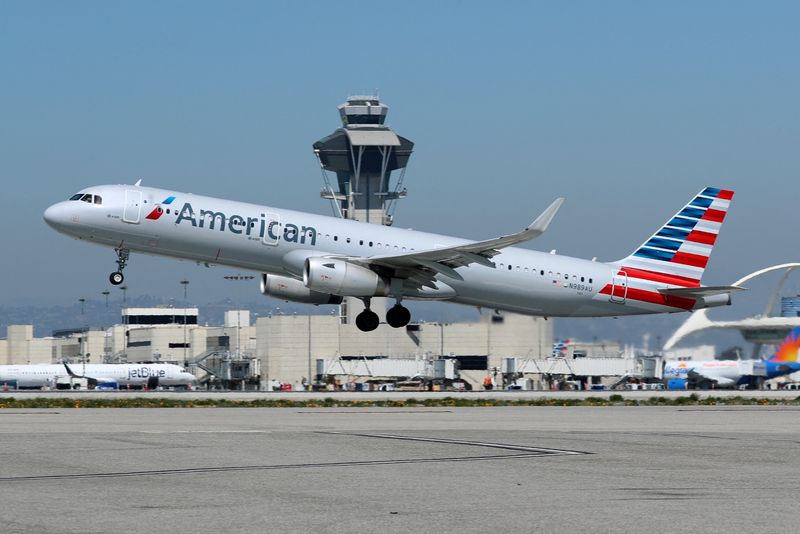By Rajesh Kumar Singh and Kannaki Deka
(Reuters) -American Airlines on Tuesday cut its second-quarter profit forecast on weaker pricing power, sending its shares of down about 8% in aftermarket trading.
The company also said its Chief Commercial Officer Vasu Raja will leave in June. Raja has been spearheading the airline's new business strategy.
The Texas-based carrier now expects second-quarter adjusted earnings in the range of $1.00 to $1.15 per share, compared with its previous forecast of between $1.15 and $1.45 per share.
It forecast total revenue per available seat mile, a proxy for pricing power, to be down about 5% to 6% from a year ago. That compares with a decline of 1% to 3% expected earlier.
American revised down its outlook even as summer travel demand is projected to hit record levels. The U.S. Transportation Security Administration (TSA) screened 2.95 million airline passengers on Friday, the highest number on a single day.
The record travel coincided with the Memorial Day weekend that marks the beginning of the U.S. summer travel season, which tends to be the most profitable season for airlines. Airlines are expected to transport 271 million passengers, up 6.3% from last year, according Airlines for America (A4A) that represents major U.S. carriers.
American Airlines (NASDAQ:AAL)' forecast also contrasts with that of United Airlines, which on Tuesday reaffirmed its second-quarter earnings forecast of $3.75-$4.25 per share.
Analysts have been skeptical about American's strategy to differentiate itself from rivals. While the airline has walked away from corporate travel customers, it is trying to grow its market share in smaller markets.
Some analysts are not sure the move would generate significant enough revenue to make the company compete with United and Delta Air lines.

American's business revenue was up high-single digits from a year ago in the first quarter compared with a double-digit increase at Delta and United.
The airline's seat growth in the domestic market also remains elevated, which analysts say is hurting its pricing power.